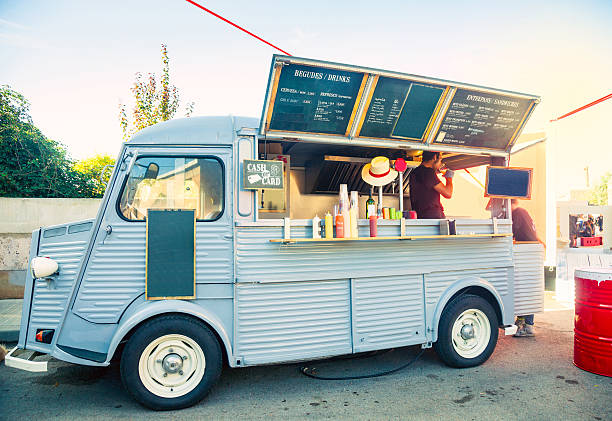Look, I've seen a lot of food trailers in my time. And you know what? The really good ones—they tell you exactly what's cooking inside before you even get close. There's a reason for that.
Starting a mobile food business isn't just about having great recipes anymore. You need a workspace that actually makes sense for what you're doing. That's where the best food trailer manufacturers come into play. These guys? They're not building cookie-cutter boxes. They're solving problems you didn't even know you'd have.
Every Cuisine Has Its Own Personality
Think about it. A burger joint needs completely different stuff than a Thai food operation. I mean, you can't exactly make pad thai on the same setup you'd use for smoking brisket. Doesn't work like that.
Mexican food? You're looking at multiple griddles, maybe three or four steam tables running at once, and Lord knows you need space for all those fresh ingredients. Walk into an Asian kitchen setup and it's a whole different world—wok stations that could melt your face off, rice cookers everywhere, ventilation systems working overtime because that heat is no joke.
The layout's gotta match how you actually move when you're slammed. Nobody's got time to walk back and forth grabbing stuff during lunch rush.
Equipment Choices That Actually Matter
Here's where manufacturers earn their money. They sit down and ask what you're making. Sounds simple, but man, this conversation changes everything about your trailer.
Frying stuff all day? Better have ventilation that works and fire suppression that won't leave you panicking at 2 AM. Doing ice cream or frozen yogurt? Those freezers eat power like crazy—your electrical setup needs to handle it without shutting down every twenty minutes.
BBQ trailers are probably my favorite examples. Built-in smokers, warming cabinets that keep everything at temp, serving windows positioned so people can smell that smoke from down the block. Coffee trailers go the opposite direction—everything's about the espresso machine placement, water quality, pastry displays up front where people can drool over them.
Completely different games.
How People Actually Work Inside These Things
Good builders think about bodies in motion. Where's your team gonna stand during a rush? Can two people work without wanting to kill each other? Where does the food go between cooking and serving?
I watched a Mediterranean place get their trailer designed last year. They ended up with refrigerated rails for toppings right at hand level, shawarma spit positioned perfect for slicing, pita warmer where it made sense in the flow. Everything just... worked. That's what happens when someone actually thinks about the process.
Dessert trailers flip the script completely. Display cases up front doing all the selling, baking equipment hidden in back. Different priorities, different design.
The Outside Sells Before the Inside Does
Your trailer's exterior? That's your first impression, your only impression sometimes. An Indian food trailer might go bold with colors and patterns that practically shout "authentic food here!" Japanese concepts often do the minimalist thing—clean, simple, lets the food speak.
Some manufacturers team up with design people to create wraps that stop traffic. Others build custom windows, add awnings, even outdoor seating when space allows. Point is making people curious enough to walk over.
Getting Creative With Limited Space
Space is always the enemy. Always. Smart designers squeeze functionality out of every single inch. Overhead racks, storage under literally everything, magnetic strips for knives, prep surfaces that fold down when you need them and disappear when you don't.
I've seen spice drawers organized by cuisine type, temperature-controlled spots for ingredients that get fussy. It's impressive what fits when someone knows what they're doing.
Power and Water—The Boring Stuff That Matters
Different foods need different juice. Deep fryers and serious equipment? You need electrical that can handle it. Some trailers run generators, others need to plug into shore power. Manufacturers calculate your actual needs based on real equipment, not guesses that leave you screwed mid-service.
Water's another thing. Juice bars need massive water capacity and drainage. Burger operations? Not nearly as much. Depends entirely on what you're doing.
Finding the Right Builder
When you're ready to actually do this, experienced concession trailer manufacturers become your best friends. They know local health codes (which change depending where you're setting up, annoyingly). They help with permits. They make sure your setup passes commercial kitchen standards.
The really good ones suggest stuff you never considered. "What if we moved this window?" or "Did you think about this workflow?" They've done this hundreds of times. They've seen what fails and what works.
Bottom Line
Custom food trailers cost real money. Not gonna lie about that. But when your space is built around how you actually cook? Everything gets easier. Orders move faster. Your crew doesn't want to quit after busy weekends. And honestly, working in a well-designed trailer beats fighting with a poorly planned one any day of the week.
Whether you're planning gourmet grilled cheese or authentic ramen, finding manufacturers who get your specific cuisine makes or breaks the whole thing. Good food deserves a workspace that makes sense—even if that workspace rolls down the highway with a killer paint job.





Comments